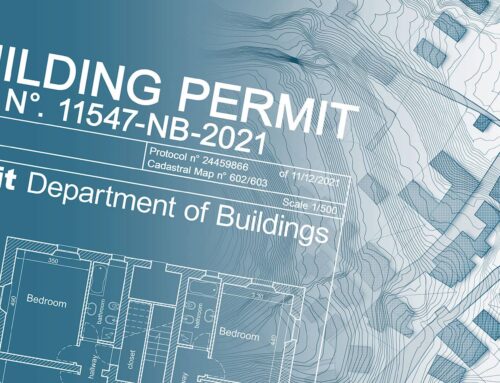
Unlocking the Language of Real Estate: Must-Know Terms for Buyers and Sellers in Colorado
Whether you are buying or selling a property, navigating the complex world of real estate can be overwhelming without a basic understanding of the essential terms. From understanding the difference between a buyer’s and seller’s market to grasping the concept of appraisals and contingencies, having a solid grasp on these crucial terms can make all the difference in ensuring a successful and stress-free real estate transaction. In this article, we will explore the most important real estate terms to know, providing you with the knowledge and confidence to make informed decisions throughout the process.
REAL ESTATE TERMS TO KNOW:
1. Appraisal: An evaluation conducted by a licensed appraiser to determine the market value of a property. Appraisals are often required by lenders before approving a mortgage loan.
During an appraisal, the licensed appraiser carefully examines the property’s size, condition, location, and any unique features it may have. They also consider recent sales of similar properties in the area, known as comparables, to determine the property’s market value. The appraiser then provides a detailed report that includes the estimated value of the property, supporting data, and any factors that may have influenced the appraisal. This report is crucial for lenders as it helps them determine if the property’s value is sufficient to cover the loan amount, reducing the risk of default. Additionally, appraisals provide buyers and sellers with an objective and unbiased assessment of a property’s worth, ensuring a fair and accurate transaction.
2. Closing Costs: Fees paid by the buyer or seller during the closing process to finalize the real estate transaction. These costs may include loan origination fees, attorney fees, title insurance, and recording fees.
In addition to the aforementioned fees, closing costs can also include appraisal fees, inspection fees, survey fees, and prepaid expenses such as property taxes and homeowner’s insurance. The specific amount and breakdown of closing costs can vary depending on the location, type of property, and the terms of the purchase agreement. It is important for buyers and sellers to carefully review the closing disclosure or settlement statement provided by the lender or closing agent to understand the full extent of the closing costs involved in the real estate transaction.
3. CMA (Comparative Market Analysis): A report prepared by a real estate agent that analyzes recent sales of similar properties in the area to determine a fair market value for a home. This helps sellers set an appropriate listing price and buyers make informed offers.
The Comparative Market Analysis (CMA) is a crucial tool used by real estate agents to provide valuable insights into market trends and property values. By examining recent sales of comparable properties, the CMA helps both buyers and sellers understand the current market conditions and make informed decisions. For sellers, the CMA assists in setting a competitive listing price that attracts potential buyers while ensuring a fair return on investment. On the other hand, buyers benefit from the CMA by gaining knowledge about the fair market value of a property, allowing them to make reasonable offers and negotiate effectively. Additionally, the CMA provides a comprehensive overview of the local market, including factors such as average days on the market, supply and demand dynamics, and pricing trends, enabling buyers and sellers to strategize accordingly. Overall, the CMA plays a pivotal role in facilitating fair and efficient real estate transactions.
4. Contingency: A condition that must be met before a real estate transaction can be finalized. Common contingencies include home inspections, financing, and the sale of the buyer’s current home.
Contingencies play a vital role in protecting the interests of both buyers and sellers in a real estate transaction. Home inspections are one of the most common contingencies, allowing the buyer to have the property thoroughly inspected by a professional to identify any potential issues or damages. This contingency gives the buyer the opportunity to negotiate repairs or request a price reduction if significant issues are found. Financing is another crucial contingency that ensures the buyer can secure a loan to purchase the property. If the buyer fails to secure financing within the specified time frame, the contract can be terminated, and the buyer’s earnest money can be returned.
Additionally, the sale of the buyer’s current home is often a contingency, allowing them to proceed with the purchase of a new property only after successfully selling their existing one. This contingency protects the buyer from being burdened with multiple mortgage payments if their current home doesn’t sell within the specified time. Overall, contingencies provide necessary safeguards for both parties involved in a real estate transaction, ensuring a fair and smooth process.
5. Deed: A legal document that transfers ownership of a property from the seller to the buyer. It includes the names of the parties involved, a legal description of the property, and is recorded with the county to establish legal ownership.
In addition to transferring ownership, a deed also serves as evidence of the transaction and provides certain guarantees to the buyer. There are different types of deeds, such as a warranty deed, which guarantees that the seller holds clear title to the property and has the right to sell it, and a quitclaim deed, which transfers whatever interest the seller may have in the property, without making any guarantees about the title. Once a deed is signed and recorded, it becomes a permanent record that can be accessed by anyone interested in the property’s ownership history. This helps to establish a chain of title and ensure that future buyers are aware of any existing claims or encumbrances on the property.
6. Earnest Money: A deposit, typically held in escrow, made by the buyer to demonstrate their serious intent to purchase the property. If the sale goes through, the earnest money is applied toward the purchase price. If the sale falls through, the earnest money may be forfeited to the seller.
Earnest money serves as a form of protection for the seller in the event that the buyer decides to back out of the sale without a valid reason. By requiring the buyer to put down a significant amount of money, usually a percentage of the purchase price, the seller can be assured of the buyer’s commitment to the transaction. If the sale does not go through due to a breach of contract by the buyer, such as failure to secure financing or inspection issues, the seller may be entitled to keep the earnest money as compensation for the time and effort lost during the failed transaction. However, if the sale falls through due to reasons beyond the buyer’s control, such as the seller’s inability to deliver a clear title, the earnest money is typically returned to the buyer.
7. Escrow: A process where a neutral third party holds funds, documents, and other assets related to a real estate transaction until all conditions are met. This ensures that both the buyer and seller fulfill their obligations before the transaction is completed.
The escrow process is typically initiated when the buyer and seller reach an agreement on the terms of the real estate transaction. Once the escrow is opened, the neutral third party, often an escrow officer or a title company, steps in to oversee the transaction. They receive and hold onto the funds, documents, and other assets until all agreed-upon conditions are met.
During the escrow period, the buyer may conduct inspections, obtain financing, or perform any other necessary due diligence. The seller, on the other hand, may be required to address any issues that arise during inspections or fulfill certain repair obligations. The escrow officer ensures that these conditions are met by coordinating with all parties involved, including lenders, insurance agents, and title companies.
Once all the conditions have been satisfied, the escrow officer facilitates the transfer of ownership by distributing the funds and transferring the title to the buyer. This final step is completed only when both the buyer and seller have successfully fulfilled their obligations. The escrow process provides a level of security and transparency for both parties involved, ensuring a smooth and fair real estate transaction.
8. Homeowners Association (HOA): An organization that enforces rules and regulations for a community or development, often in condominiums or planned communities. HOAs collect fees from homeowners to maintain common areas and provide amenities.
In addition to maintaining common areas and providing amenities, homeowners associations also play a crucial role in preserving property values and ensuring a harmonious living environment. They establish and enforce rules and regulations that help maintain the aesthetic appeal of the community, such as guidelines for architectural design, landscaping, and property maintenance. HOAs also mediate disputes among homeowners and enforce compliance with rules, which can help maintain a sense of order and prevent conflicts from escalating. Additionally, HOAs may organize community events and social gatherings, fostering a sense of community and promoting a neighborly atmosphere.
9. MLS (Multiple Listing Service): A database used by real estate agents to share information about properties for sale. The MLS allows agents and buyers to search for available properties based on various criteria, such as location, price, and features.
The MLS is a central hub of information for the real estate industry, facilitating the buying and selling process. Real estate agents can input detailed information about properties into the MLS, including the listing price, square footage, number of bedrooms and bathrooms, and any additional features or amenities. This allows potential buyers to easily search and compare properties that meet their specific criteria. Additionally, the MLS enables collaboration and cooperation between agents, as they can share and access information about properties listed by other agents, expanding the pool of potential buyers and increasing the chances of a successful sale. Overall, the MLS plays a crucial role in streamlining the real estate market and ensuring that properties are effectively marketed and matched with interested buyers.
10. Title Insurance: An insurance policy that protects the buyer and lender against any loss resulting from a title defect or ownership claim. A title search is conducted to ensure the property’s title is clear before issuing the insurance policy.
Title insurance plays a crucial role in real estate transactions by providing protection and peace of mind to both buyers and lenders. When purchasing a property, it is essential to ensure that the title is clear and free from any defects or claims that could potentially impact the ownership rights. A title search, conducted by a professional title company or attorney, thoroughly examines public records to verify the history of ownership, liens, encumbrances, and other potential issues related to the property’s title. If any problems are identified during the search, the title insurance policy can provide coverage for any resulting financial losses, legal fees, or damages. This insurance policy not only safeguards the buyer’s investment but also protects the lender’s interest in the property, providing an added layer of security for all parties involved in the transaction.
11. Zoning: The local government’s regulations determine how land can be used within specific areas. Zoning laws may restrict the type of activities permitted on a property, such as residential, commercial, or industrial use.
Zoning is an essential tool used by local governments to manage and control the development of land within their jurisdiction. The primary goal of zoning is to ensure that land uses are compatible and promote the overall welfare and quality of life for residents. By designating specific zones for residential, commercial, or industrial purposes, zoning laws help prevent conflicts between different types of activities. For example, zoning regulations may prohibit the establishment of industrial facilities in residential neighborhoods to protect the health and well-being of residents from potential noise, pollution, or safety hazards. Additionally, zoning can also regulate the density, height, and size of buildings, as well as the provision of amenities such as parking spaces and green spaces, to promote orderly and sustainable development.
Conclusion: Real Estate Terms to Know
In conclusion, being well-informed about the real estate market is crucial for buyers and sellers alike. By understanding the terminology commonly used in the industry, you can navigate the process with confidence and make informed decisions. Whether you are a first-time homebuyer, a seasoned investor, or someone looking to sell your property, knowing these key terms will undoubtedly enhance your real estate journey.
If you are looking for a dedicated and knowledgeable real estate team to guide you through the buying or selling process, look no further than The Storck Team. With their years of experience and passion for helping clients achieve their real estate goals, The Storck Team is committed to providing exceptional service and ensuring your needs are met at every step.
Don’t hesitate to reach out to The Storck Team today to schedule a consultation. Together, you can explore the local market, discuss your specific requirements, and embark on a successful real estate journey. Remember, whether you’re buying or selling your dream property is just a call away!










